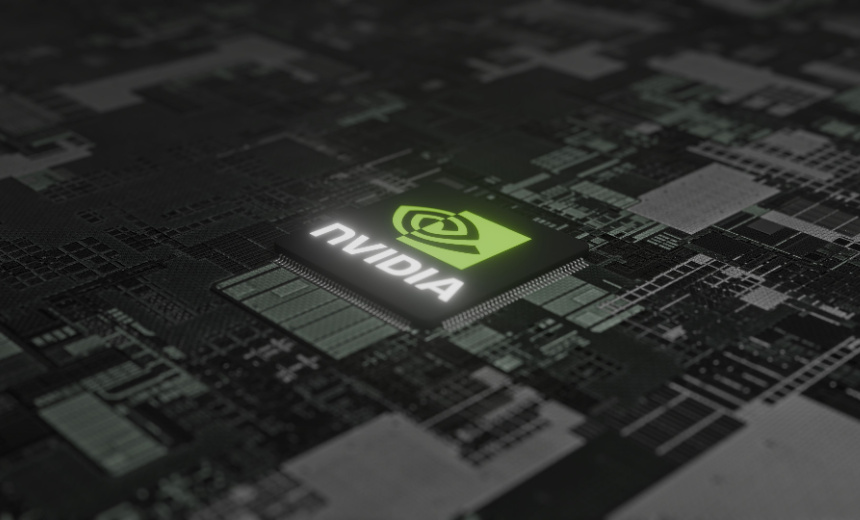Artificial Intelligence & Machine Learning
,
Government
,
Industry Specific
Analysts Warn White House Chip Reversal Threatens US AI Dominance

President Donald Trump’s reported move to lift federal restrictions on selling some of Nvidia’s advanced artificial intelligence semiconductor chips to China could undercut the United States’ lead in the global AI race, analysts warned Tuesday.
See Also: New Trend in Federal Cybersecurity: Streamlining Efficiency with a Holistic IT Approach
The unexpected announcement came not from the White House, but from Nvidia, after the semiconductor giant’s CEO, Jensen Huang, met with Trump and senior officials from Beijing in recent days. Nvidia said in a Monday blog post the company would soon file applications to once again sell its H20 GPU chip in China and “the U.S. government has assured Nvidia that licenses will be granted.”
The company also said that it had created a “new, fully compliant” pro GPU designed to power complex AI systems in smart factories and logistics while aiming to advance its mission to “democratize AI.” But industry specialists told Information Security Media Group the administration’s move could erode the nation’s long-range technological edge, undercut its strategic position in critical technologies and ultimately enable China to build artificial intelligence models that compete with leading American platforms.
China worked around the initial GPU ban by optimizing less powerful H800 chips – using techniques including flash attention to cut memory demands, custom AI accelerators for targeted workloads and mixture-of-experts architecture to lower computational costs. Easing export controls on these advanced Nvidia chips “now gives China a great advantage in the pursuit of artificial general intelligence,” according to Napoleon Paxton, vice president of federal technology at AI Squared.
“These chips allow unparalleled processing power,” Paxton told ISMG, noting that the U.S. began restricting access to Nvidia’s A100 and H100 chips in October 2022 to secure an edge just before OpenAI’s ChatGPT was introduced to the world stage. He warned that “data collection and surveillance potential will most certainly rise” as Beijing backs its own AI models such as DeepSeek, China’s answer to ChatGPT, which reportedly used multiple methods to lower development costs and computational demands (see: DeepSeek’s Rise Shows Limits of US Chip Controls).
Under former President Joe Biden, the White House issued a series of last-minute Department of Commerce regulations – set to take effect after 12 months – that created a three-tiered export system imposing the strictest limits on Russia and China while allowing near-unrestricted imports for key allies. Nvidia and other chip makers, along with the Semiconductor Industry Association, pushed back, with the trade group saying a shift “of this scope and significance should not be rushed out the door during a period of presidential transition and without meaningful input from industry” (see: Last-Minute Biden Rules on AI Chips Hits Industry Resistance).
The Trump administration then tightened those restrictions after the release of DeepSeek in April, effectively banning the sale of H20 chips to China while requiring U.S. companies to obtain special licenses. The move followed fears that China could still use less-advanced chips to support its military and AI surveillance programs.
China “poses a direct and increasingly sophisticated threat to U.S. AI leadership,” said Chris Rouland, CEO of the cybersecurity firm Phosphorous Cybersecurity. The warnings come as recent studies indicate China is outpacing the U.S. in critical technology research investment, with Beijing pouring funding into 57 key areas across AI, defense, energy, biotechnology, robotics and cybersecurity (see: China Is Outpacing US in Critical Tech Research Investments).
It remains unclear why the administration chose to reverse the policy, though Trump has routinely pledged to roll back regulations on AI and tech companies to help spur innovation, vowing to eliminate rules he sees as burdensome. The White House did not respond to a request for comment.
It was not immediately clear when Nvidia begins to plan selling its H20 GPUs to China again. The company said in its announcement that it “hopes to start deliveries soon.”
